You may have heard of it before, but what is a heat exchanger, and how can it help you? There is a lot of information that you will need to process to understand the use of a heat exchanger and how it can help you, which is why your trusted plumbers are here to lend a helping hand. When investing in a heat exchanger with Bishop Plumbing & Heating, the team will be able to take you through the pros and cons of materials and whether or not to invest in repairs, ensuring that you make an informed decision. We have put together a rough guide on what is a heat exchanger to give you all of the information you need.
Sign Up To Our Newsletter!
Get all the latest updates and tips by subscribing.
What Is A Heat Exchanger? All You Need To Know
When looking for a new boiler, descriptions and additional information can make it exceptionally difficult for you to know what the right option is. Here at Bishop Plumbing & Heating, we aim to provide our clients with easy to digest information, ensuring that no matter how complicated something may seem, we are always more than happy to offer basic information to help you make informed decisions. This is why we have pieced together an easy-to-follow guide telling you everything you need to know about heat exchangers.
- Types of Heat Exchanger Materials
- What Does A Heat Exchanger In A Boiler Do?
- Signs Of Heat Exchanger Failure
- Is It Worth Repairing Heat Exchangers?
- The Best Boilers
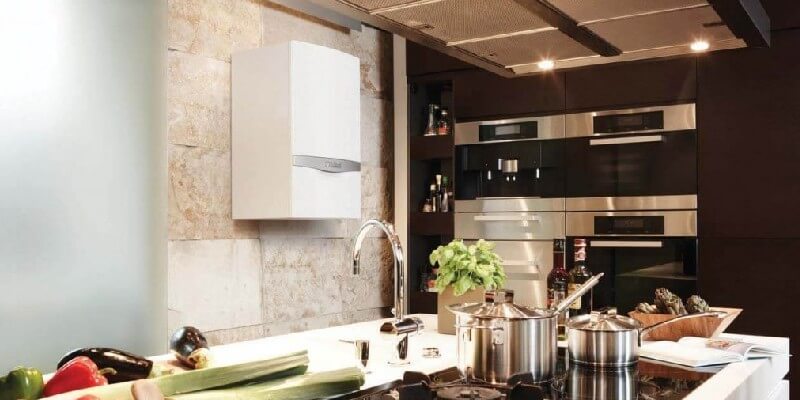
Types of Heat Exchanger Materials
There are two main types of heat exchanger materials, aluminium and steel, both of which have their pros and cons. Stainless steel exchangers are the most common as they have been used for many years, whereas aluminium exchangers are slightly newer to the market, and are most commonly found in newer and more advanced boiler systems.
Stainless Steel Heat Exchanger
Stainless steel is frequently used in modern domestic appliances due to its strength, durability and high resistance to corrosion, resulting in it being a favourable choice for not only heat exchangers, but technologically advanced products too. A stainless steel heat exchanger is especially helpful as they do not require the use of system inhibitors and are, in fact, compatible with plain clean water. This means there is little maintenance required in order for a stainless steel heat exchanger to remain in good condition. It should also be understood the performance of stainless steel varies depending on the amount of chromium it contains. This means that unless the stainless steel is of a high grade, it will be a less effective heat exchanger.
While aluminium may be cheaper to manufacture, making it a favoured solution for many boiler companies, it is stainless steel that boasts higher quality. Stainless steel is known as one of the most durable and strongest materials in the world, making it better equipped to handle much higher temperatures compared to aluminium.
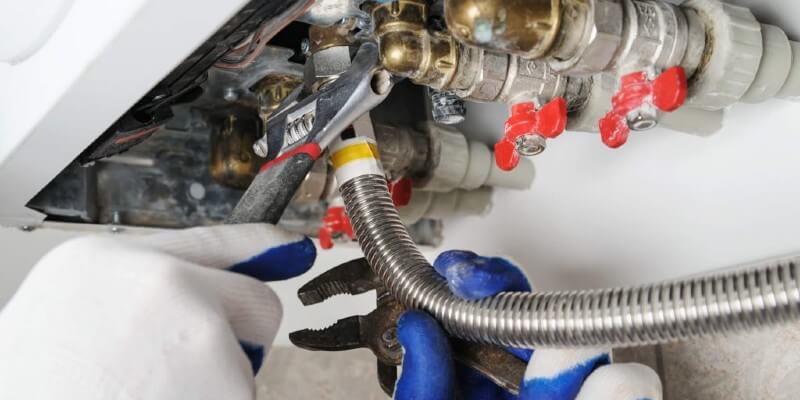
Aluminium Heat Exchanger
While it is true that stainless steel is an excellent material to use for heat exchangers, aluminium is equally as effective, if not better. For example, the thermal conductivity of aluminium is four and a half times higher than stainless steel. In comparison to stainless steel, it is also cheaper, lighter and arguably more effective at resisting corrosion. However, it should be noted that an aluminium heat exchanger is more likely to suffer damage if it is not maintained regularly. However, this problem can easily be fixed with regular maintenance and boiler service in Milton Keynes. Keeping your aluminium heat exchanger in good condition is important as it will significantly improve its durability and efficiency.
The thermal conductivity of any metal has a direct impact on its heat transfer efficiency. So, if a material has the ability to transfer heat successfully, it will directly improve the overall performance of the heat exchanger. Aluminium is an excellent conductor of heat and can therefore successfully transfer the heat from the combustion gasses to the system water when used in a boiler.
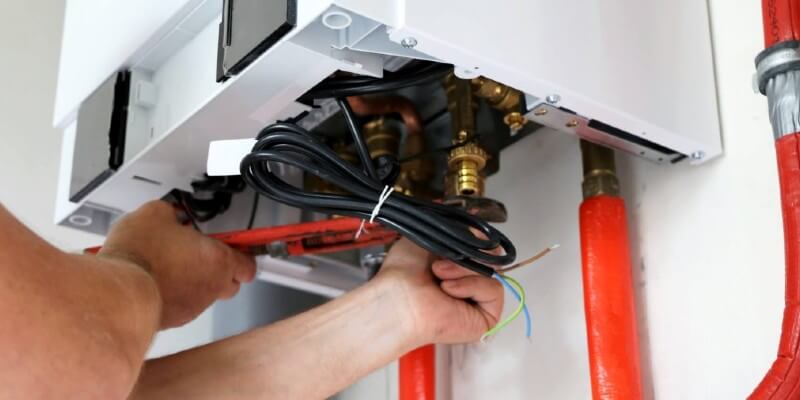
What Does A Heat Exchanger In A Boiler Do?
Have you ever wondered how your boiler heats up water? Well, the heat exchanger in your boiler is the key to heating up your home, but what does a heat exchanger in a boiler do? A heat exchanger will allow the heat to be exchanged from one fluid to another (typically water or gas) without allowing the two substances to mix together. The heat exchanger consists of a long coil pipe that is surrounded by cold water; the gas or fluid is then passed through the coil, and as it moves, it will start to heat up. This heat is then transferred to the cold water to produce hot water for your showers. Heat exchangers can be found in your boiler and your radiators, making them one of the most important components of your system. It is important for you to maintain the efficiency and condition of the heat exchanger as this will prolong the life of your system while also minimising the risk of repairs and breakdowns. This can be achieved with a boiler service in Buckingham.
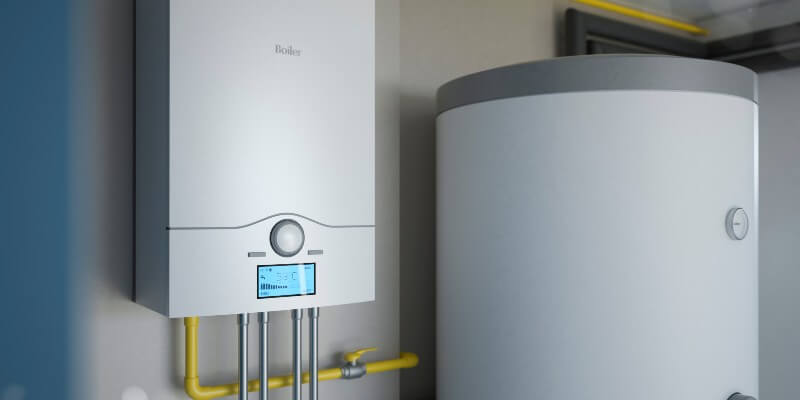
Signs Of Heat Exchanger Failure
Before diving into the most common signs of heat exchanger faults, it is first important to establish what could be causing the faults in the first place. Much like it is the case for any part of your home, it is important to make sure that you look after your boiler to ensure that you minimise the risk of faults and problems. Here are the most common causes of heat exchanger faults:
Limescale Build Up
Overtime, limescale can build up in pipes and appliances, blocking the flow of heat. Signs that this can be causing the issue include:
- Whistling noises
- Leaking heat exchanger
Central Heating Sludge
Rust and dirt build-up can cause sludge which can dramatically slow down the flow of water. Signs of this can include:
- Dirty radiator water
- Kettling noises
- Cold spots on radiators
Now that you understand the common causes of heat exchanger failure, it is now time to identify the signs that your heat exchanger is failing. Most of these signs will be similar to those presented above, but there are also a few other signs you should keep in mind. For example, if your house is not heating up at all, then this could be a sign that you need your boiler replaced or repaired. Additionally, if you have no hot water, then it could be time to call in the professionals to check your heat exchanger.
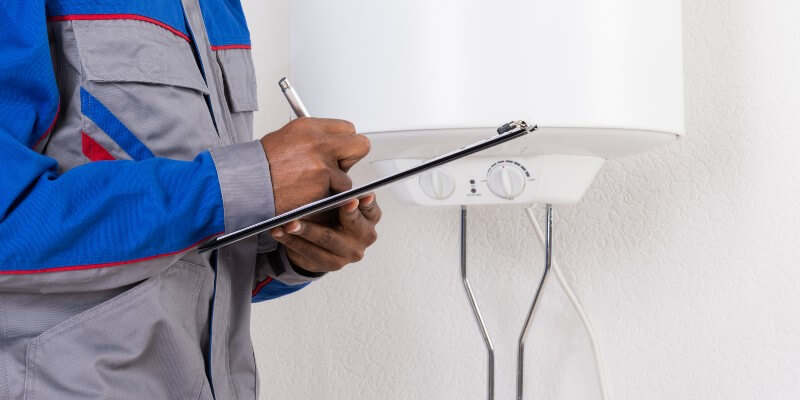
Is It Worth Repairing Heat Exchangers?
When attending clients homes to help identify that it is, in fact, their heat exchanger causing the issues, we often get asked whether it is worth replacing the heat exchanger. Your heat exchanger is most likely only going to cause you issues if the boiler is old and passed 15 years, so many of our clients choose to have boiler replacement instead. Not only can age be a factor, but the price of heat exchanger repairs and replacements often leads many of our clients to replace the entire boiler. It costs on average around £400-£600 for to heat exchanger replacement, whereas, a new boiler can range between £500 and £2000 depending on the boiler you choose. For this reason, it can make it much more cost-efficient to have your boiler replaced. However, our team will always take you through your options before you make your decision and are happy to discuss the many products available for boiler installations in Milton Keynes.

The Best Boilers
It’s handy to find out everything there is to know about heat exchangers, but how can this help you to choose the perfect boiler for your home? It is important to weigh up the pros and cons of each exchanger type and then look into each boiler to ensure that you choose the right one for the exchanger you have chosen. Here at Bishop Plumbing & Heating, we install several boilers from leading brands, ensuring that no matter your decision, there will always be a high-quality and durable solution available. When working with our team to install your new boiler, you can choose from Ideal, Vaillant and Worchester, all of which are highly regarded as leading and affordable boiler solutions.
Many of our boilers also come with a 10 year warranty from the manufacturer, giving you peace of mind that your boiler is built to last. After installation, you will be able to book in regular boiler maintenance and boiler servicing to ensure that your system is up and running at all costs. If you have any issues with your boiler, then our team are just a phone call away to help you fix the issue.
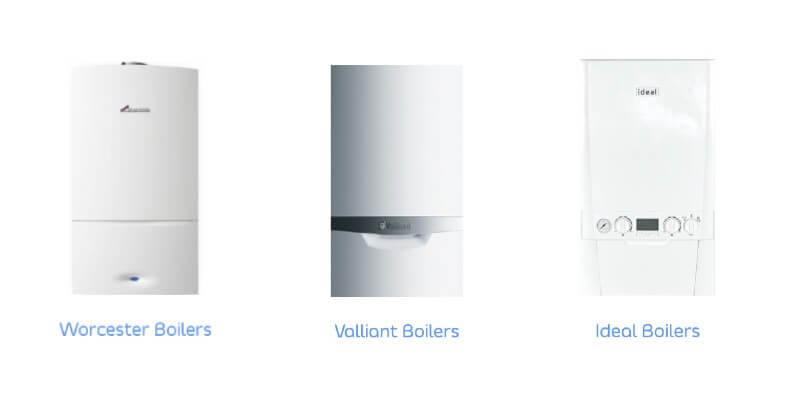
Is It Time For A New Boiler?
By understanding what heat exchangers are and what role they play in your boiler, it ensures that you can make the right decision when it comes to choosing your new boiler. Although there are pros and cons of steel and aluminium heat exchangers, it is important to note that both are exceptionally durable and reliable, making them a fantastic material for your boiler. If you have any questions or would like to know more about our boilers, please feel free to give our team a call.













